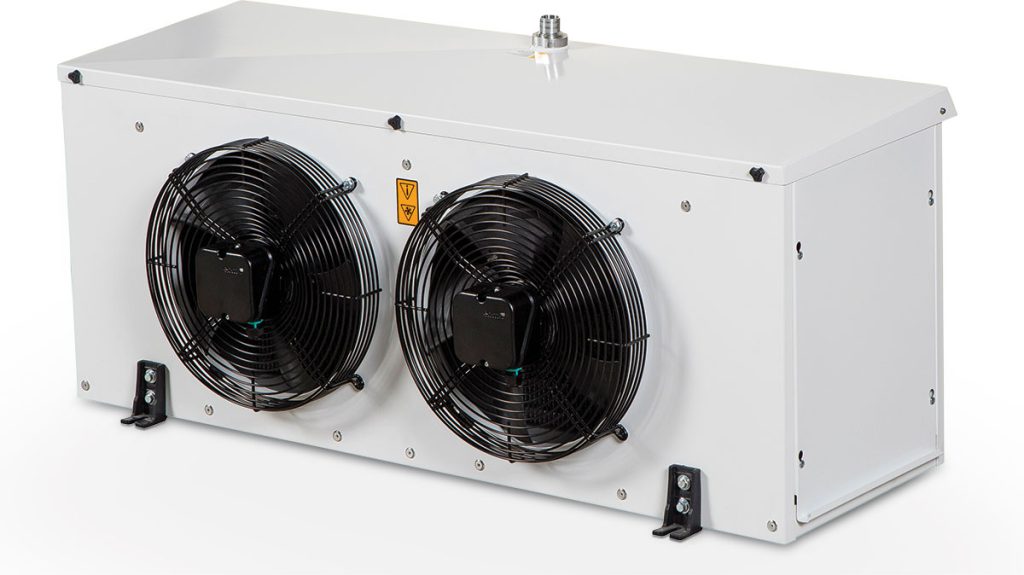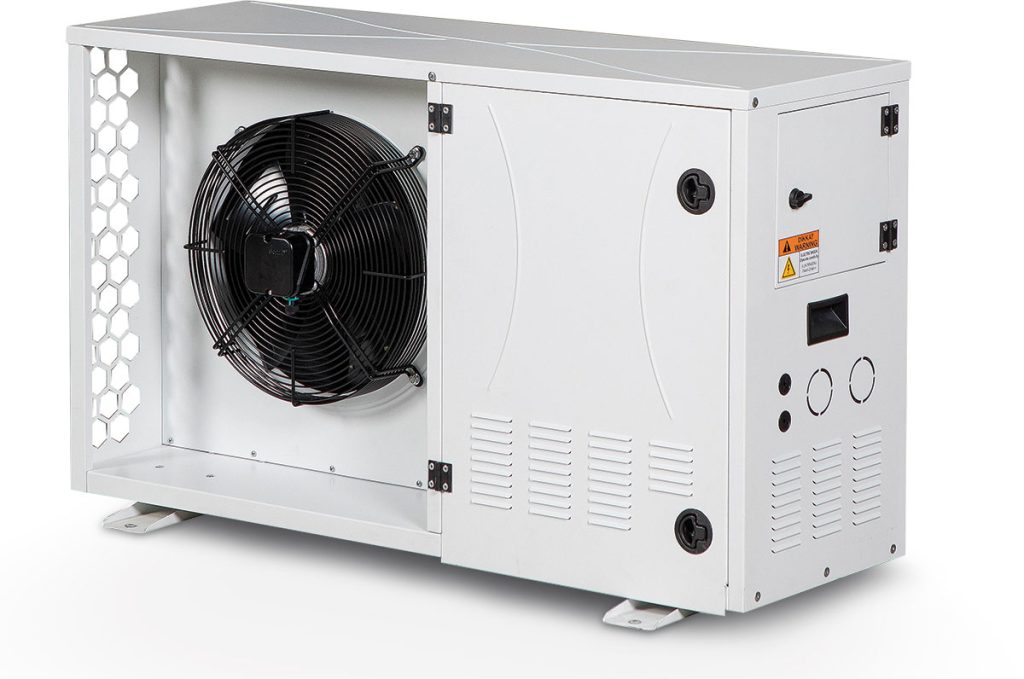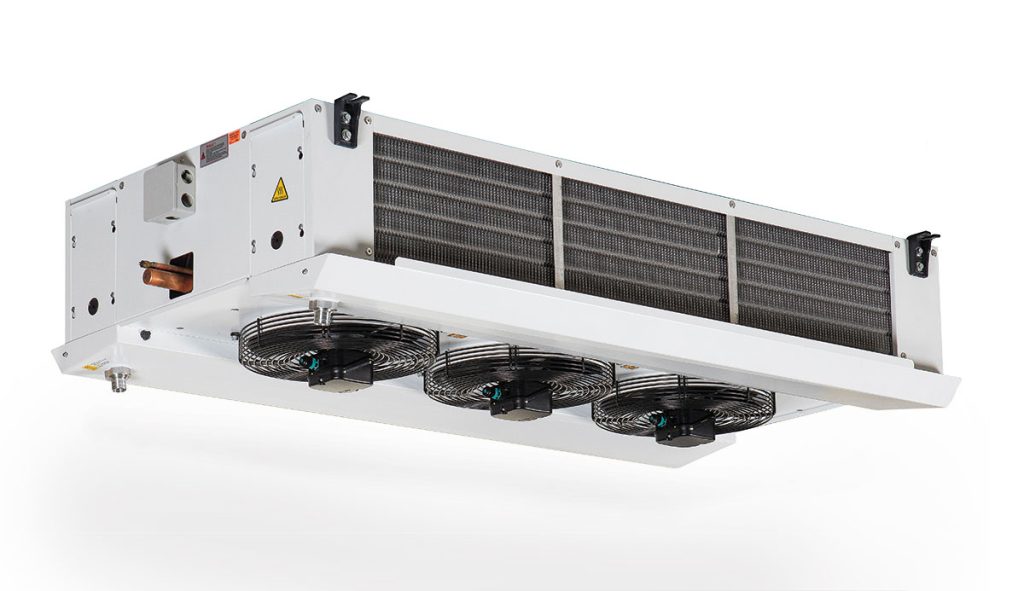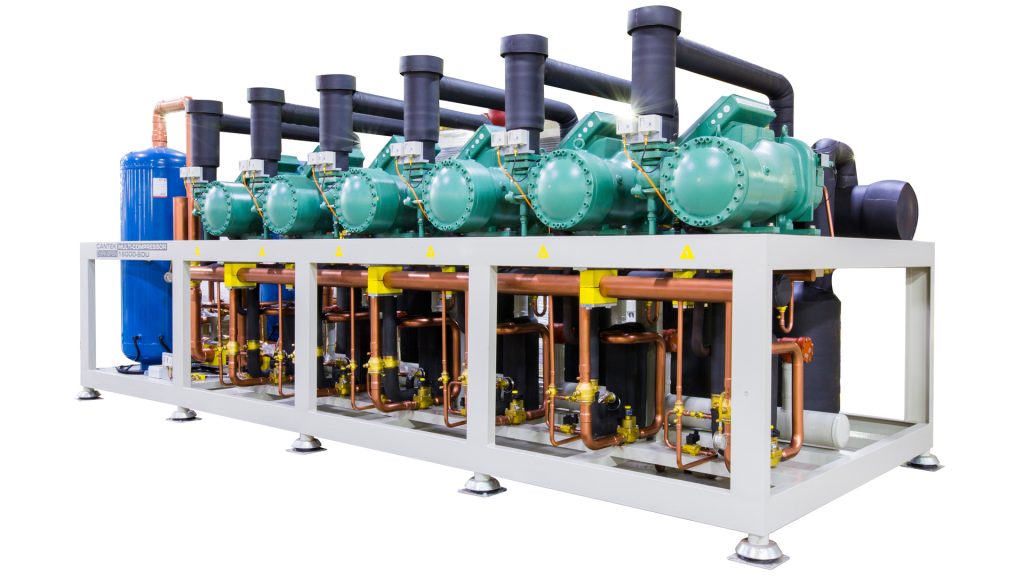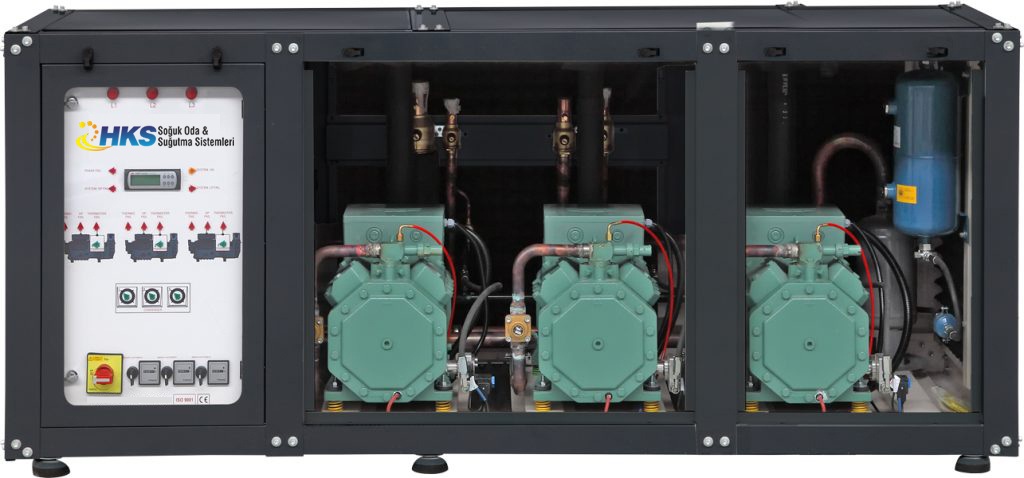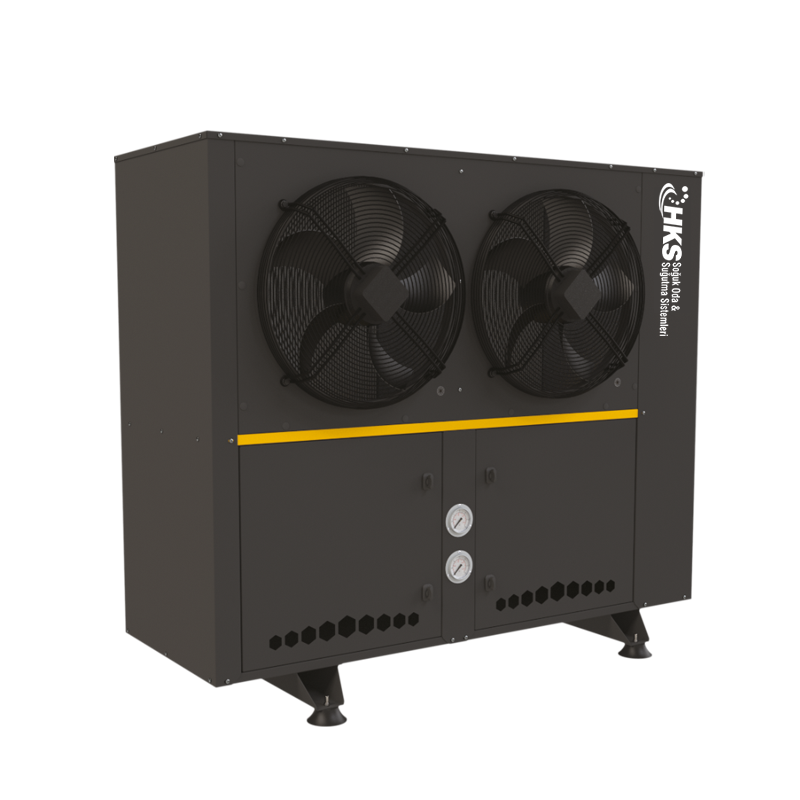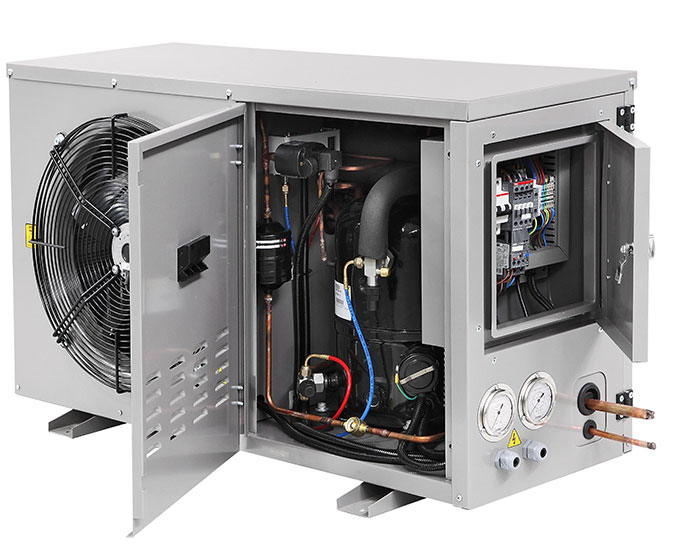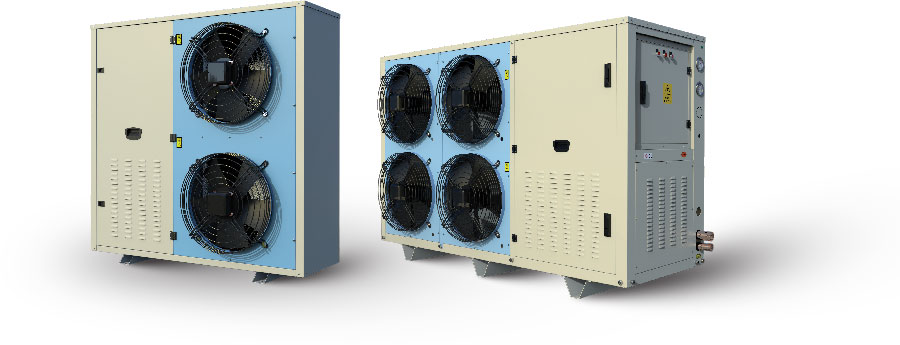Chiller (coolant circulation device) is a general term for a device that controls temperature by circulating a liquid or air, such as water or heat medium, as a coolant whose temperature is set by the refrigerant cycle. In addition to maintaining the temperature of various industrial and laboratory devices, equipment and apparatus at a constant level, it is also used for air conditioning in buildings and factories. It is often called a “cooler” because it is used for cooling.
Chiller Group Consists of Four Basic Components:
- vaporizer
- Compressor
- Condenser
- One expansion unit


